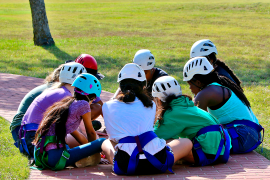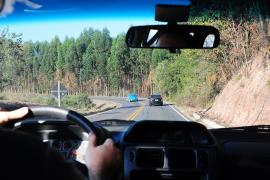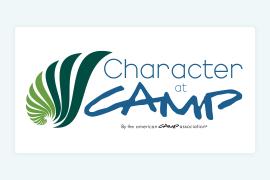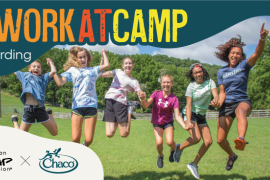Guest post by Scott Brody
American fifteen year olds are lagging behind students from other nations in math and science, according to the results of an international assessment exam called PISA. Though we'd like to think of ourselves as an educated nation, these results point to some glaring deficiencies in the way that we educate our children. For the record, our shortcomings are not limited to children from lower income families; students from wealthy American families fared no better in the results when compared to similarly well-off peers in other countries.
What is hidden behind these results, however, is an even more unsettling insight. The PISA test, unlike the standardized tests that are administered in most American schools, assesses older students in mathematics literacy and science literacy — or how well they can apply their knowledge and skills to problems set in real-world contexts. Most standardized tests that are used in the U.S. measure only content knowledge. The newest U.S. assessments now being piloted, PARCC and SBAC, which are aligned to the new "common core" standards, measure some of the cognitive skills linked to that content. They are a step forward, but they don't really assess the skills that are needed for college and career readiness. In other words, it is not what our kids know that is really important, it is whether they can apply that knowledge to real-world problems and new situations.
The PISA test does measure some of those college and career readiness skills, and the mediocre performance of our high school freshmen in these important measures should raise some pretty serious concerns among our local, state, and national leaders. We assume that Americans will always be able to innovate, to invent the future. But if these tests are any measure, our ability to think critically, to problem-solve, and to adapt our knowledge to new and novel situations is truly in doubt.
It is for this reason that a number of camps have chosen to focus on the teaching and strengthening of these essential 21st-century skills. They consider it their mission to teach their campers the skills that they will need to be successful and fulfilled in the world they will enter when they join the workforce. If our schools are unable to teach these skills right now, then it is incumbent upon all of us who work with children during out-of-school time to do this important work. Free of the constraints of funding streams and the politics of assessment, camps can do all that they can to ensure that all children are college and career ready, with the skills to innovate and invent the future.
Scott Brody is the owner/director of Camps Kenwood and Evergreen and founder of Everwood Day Camp. Read his recent Camping Magazine article, “Teaching the Skills That Children Need to Succeed.”
Photo courtesy of Cheley Colorado Camps, Estes Park, Colorado




